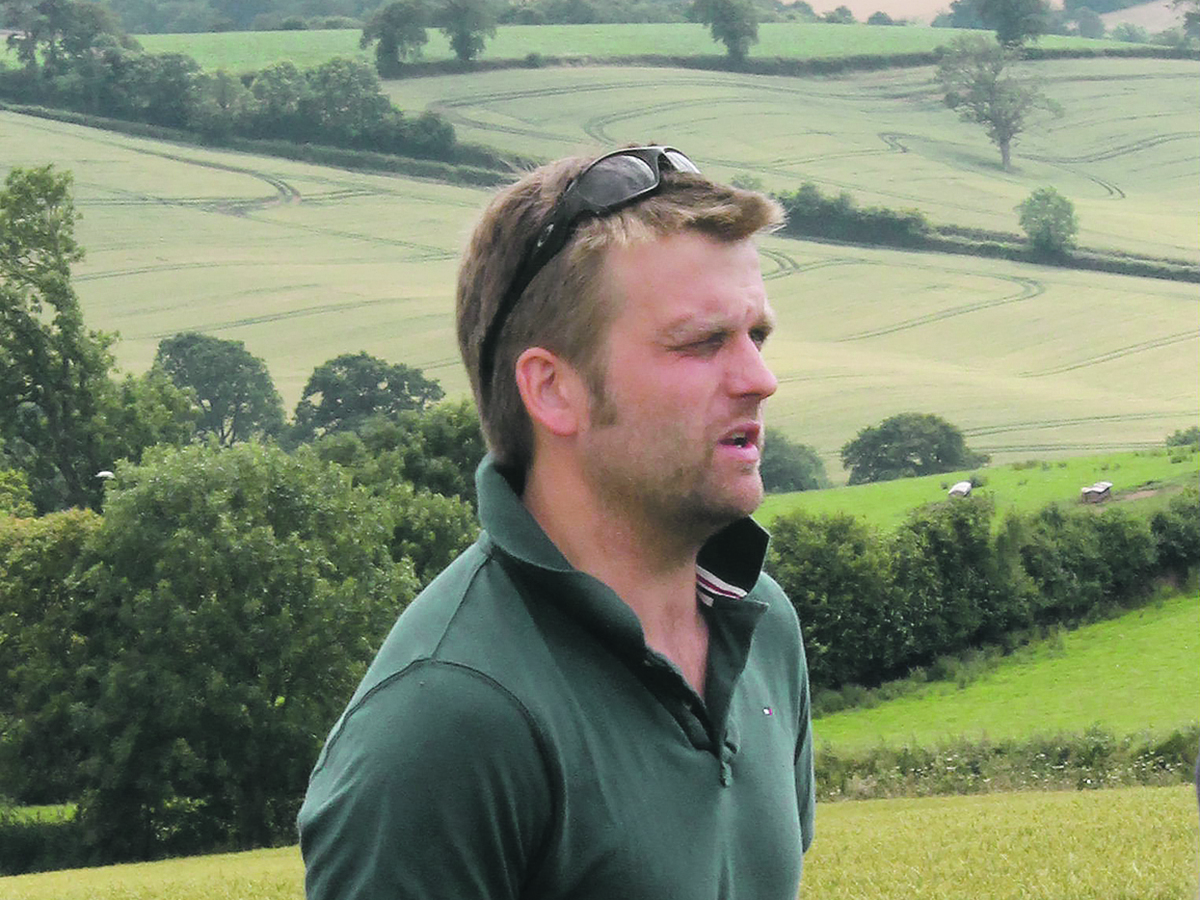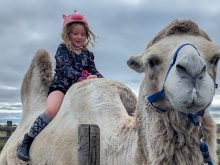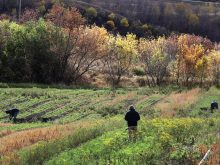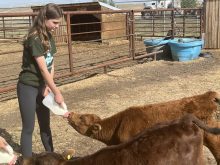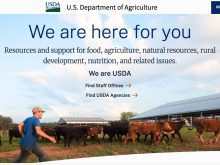Producer steadily adds to the list of initiatives he has undertaken on his operation in an effort to maintain the family farm
Ever the opportunist and entrepreneur, James Lee has been finding agribusiness opportunities throughout the Devon, England, region for nearly 20 years.
His singular focus? Maintaining the family farm.
Listing his projects was a feat in itself as we overlooked his pasture in the English countryside.
Read Also

Saskatchewan puts crown land auction on hold
Auctions of Saskatchewan crown lease land are once again on hold.
Once he graduated from university in 2006, Lee knew that 350 acres of arable land weren’t sufficient for farming success. Now with 800 acres under cultivation after leasing from neighbours, he is growing winter wheat, winter barley, rapeseed, canola, corn, flax and oats for conventional grain markets. He also grows forage and seed.
He does contract work in direct-drill seeding, plowing and harvesting for local farmers, uses around 400 acres of permanent and rotational grasses for commercial dairy and suckling cow rearing and finishing, and grows geese for English poultry markets.
If it makes a profit and balances well with other projects, Lee adds it to his list of farming ventures.
Sometimes Lee says he wishes he wasn’t driven to try new things, but on most days, he just hopes he and his team have found a balance of projects that benefit the farm and not just create busy work.
Lee grew up on the farm and wrote his dissertation on direct drilling. With so many acres on steep Devon hills, he hated to see soil washed away with spring rains. He wanted to see if direct drilling and reduced tillage were solutions to a global problem.
Using a Claydon drill, equipment developed and manufactured in the U.K., Lee says the farm has reduced tillage as much as possible, although it isn’t no-till.
“I like the term conservation agriculture. You’re integrating livestock into your arable fields, grazing cover crops, grazing your winter wheats, just trying to get that sort of livestock diversity into your arable soils, into the soil microbes. Diverse rotation and less soil movement, (it) all helps to try and build that productivity.”
Part of this soil health puzzle involves buying slurry from neighbouring pig operations. While it does come with transport costs, Lee finds greater benefit to this arrangement than applying phosphate or potash.
“You’re getting more for your money. You’re putting on organic matter, you’re putting a bulk product onto your soils, and you’re getting trace elements and hopefully more microbe-friendly inputs.”
Lee’s family has been farming the land for the last 120 years, but he is only the second generation to own the farm. He’ll have the mortgage paid in another 10 to 15 years, he says, so any opportunity that creates income is a benefit.
“It’s what we’re working on, but we’re in a nice situation, but we gotta keep going. Got to keep working hard to get there.”
Though there have been many profitable ventures, Lee said he’s willing to let things go if they no longer work.
Before buying the farm, tenancy rules prohibited certain forms of diversification like bed and breakfasts, which many farmers use for extra income. Friends from Chilliwack, B.C., gave him the idea of a corn maze. The family got 10 years of business from that idea before they let the project go.
The same thing happened with selling beef directly to customers, before other more profitable ventures made their way to the forefront.
Lee has had an interesting journey with his duck flock. Taking over a duck operation in 2014, he says it was an instant cash flow. At the pinnacle, he was selling 36,000 birds a year to high-end restaurants in London every eight weeks.
Ducks are quite hardy, he says, and the biggest initial concern was random fox attacks. But after an outbreak of avian bird flu last winter, his whole flock was culled within a week.
Dealing with government red tape has been the biggest headache, but Lee is working to establish a flock again after that bad luck.
“It could happen to anyone. I was just pleased it didn’t pass on to another farm. That’s what I was concerned about.”
Dealing with the aftermath has been a challenge, he says.
When busy with other farm work, it’s difficult to pull himself away to handle a ministry call about getting ducks back into brooding sheds, but he can’t let such things influence other parts of the business.
“Ten years ago, it was a lot easier for me to do it, but when you start stacking more and more and more stuff up and family life and everything else up, it’s a lot more hard work, and that is 100 per cent the downside.”
Lee says his focus has always remained on the farm. No one has to work off the farm to secure a living, and he is proud of that.
“It’s all focused on farm output, whether that’s a good thing or a bad thing, but that’s what it is.”



